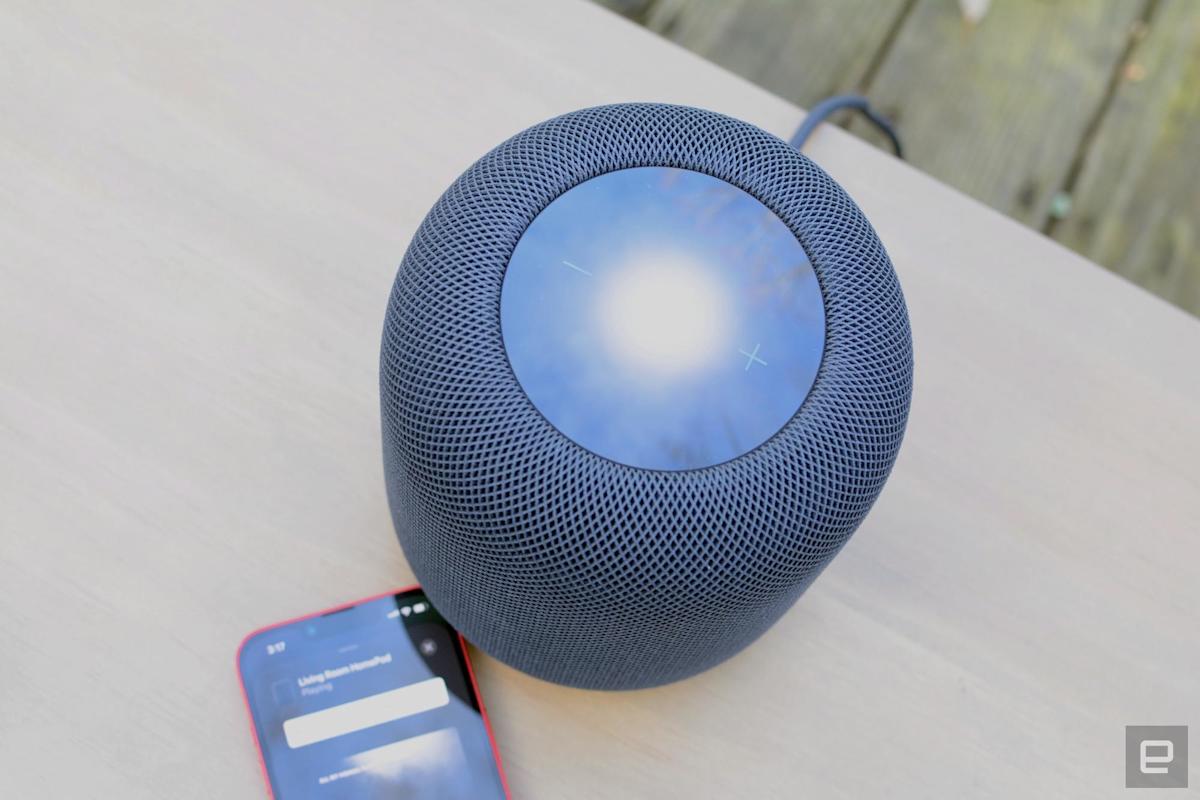Apple’s HomePod Stagnates Amid AI‑Driven Shift in Smart‑Speaker Strategy

Key Points
- Apple launched the HomePod in June 2017, three years after Amazon’s Echo.
- The HomePod’s high price and limited Siri functionality hindered market adoption.
- HomePod Mini (late 2020) and second‑gen HomePod (February 2023) added modest upgrades, including Thread support.
- AI assistants are increasingly integrated into phones and computers, reducing the need for dedicated speakers.
- Apple plans a major Siri upgrade for spring 2026 and a new smart‑home hub expected no earlier than 2027.
- The HomePod has received little recent promotion, while competitors also shift focus toward AI.
- Specialist brand Sonos dominates current smart‑speaker favorites, highlighting the market shift.
Apple’s HomePod line has struggled to keep pace with the rapid evolution of smart‑speaker markets and the broader AI push. Launched years after Amazon and Google’s offerings, the HomePod arrived late, at a high price point, and with a Siri that fell short of consumer expectations. Subsequent versions, including the HomePod Mini and the second‑generation HomePod with Thread support, added incremental improvements but did not reshape the product’s market position. As AI assistants migrate toward smartphones and computers, Apple’s roadmap now points to a major Siri overhaul slated for 2026 and a new smart‑home hub expected no earlier than 2027, leaving the HomePod largely sidelined.
Background and Early Challenges
When smart speakers first entered the market, Amazon and Google quickly established dominance, while Sonos occupied a boutique niche. Apple entered the arena with the HomePod in June 2017, nearly three years after Amazon’s original Echo. The HomePod’s launch was marked by a delayed entry, a premium price, and a Siri that many found underperforming, limiting its ability to capture significant market share.
The subsequent HomePod Mini arrived in late 2020, offering a smaller form factor at a lower price, and the second‑generation HomePod debuted in February 2023 with added support for the Thread smart‑home standard. These releases added incremental features but did not fundamentally shift the HomePod’s competitive standing.
Shift Toward AI Integration and Current Outlook
Recent trends show voice‑controlled AI assistants moving away from dedicated speakers toward tighter integration with smartphones and computers. This shift reduces the perceived need for a separate smart‑speaker device. Apple has publicly promised a substantial overhaul of Siri, but the upgraded assistant is not expected until spring 2026. To showcase the new AI capabilities, Apple is reportedly developing an interactive smart‑home hub that would incorporate HomePod‑like audio performance, with a launch projected for at least 2027.
In the interim, Apple appears to be holding back major enhancements to its existing HomePod line. While the HomePod remains available, it has received minimal attention in recent product announcements. Observers note that both Amazon and Google have also reduced focus on their smart‑speaker lines, favoring broader AI initiatives. The market’s favorite smart speakers this year are predominantly from specialist Sonos, reflecting a broader industry pivot.
There is no explicit indication that Apple plans to discontinue the HomePod, but the product’s visibility has diminished, and it may continue to occupy a peripheral role until the next generation of Apple’s AI‑focused hardware arrives.